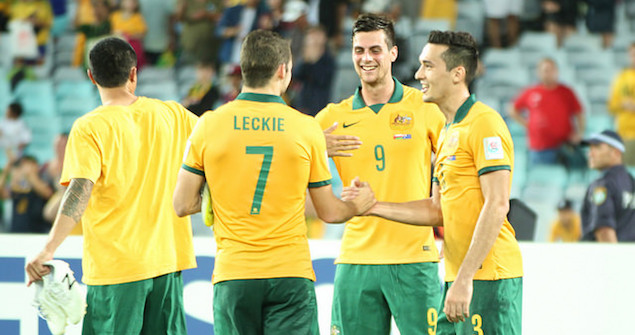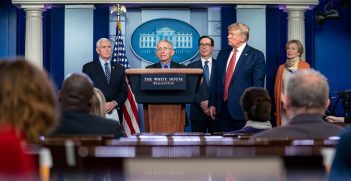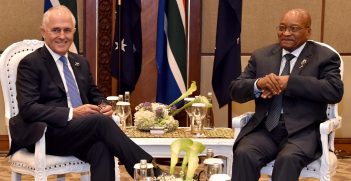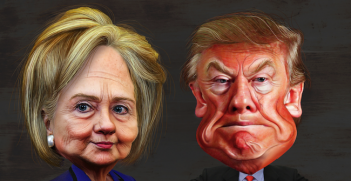Megaevents, Sports Diplomacy and the 2015 AFC Asian Cup

The 2015 Asian Cup presents tremendous opportunities in the field of sport diplomacy.
International sporting tournaments (or megaevents, as they’re increasingly known) are a curious and highly visible area of international relations and diplomacy. These quadrennial festivals of sport are diverse in scope yet relatively well known. Some are global and instantly recognisable (like the Olympics or Rugby World Cup), others are regional (African Cup of Nations) and more than a few are egregious, tragic (Munich, 1972) or, as was the case throughout much of the twentieth century, hijacked, for a time, by politics (think Berlin 1936, Argentina 1978 or Moscow 1980).
Whether you like it or loathe it, sport and politics do mix. Megaevents are thus part of the fabric of international relations systems and for the few weeks that they occur create tremendous political and diplomatic opportunities. If the posture, brand and message are thoughtfully crafted, foreign publics can be schmoozed, not to mention the trade opportunities that arise or the financial gains that host nations can enjoy.
One of these regional megaevents is currently taking place in Australia – the Asian Football Confederation’s (AFC) Asian Cup. Sixteen teams from Palestine to North Korea to Uzbekistan are competing for the trophy over a period of twenty-three days across five host cities (Sydney, Melbourne, Brisbane, Canberra and Newcastle).
The tournament is important for Australia and sport for several reasons. For one, it represents a decade’s long effort by Football Federation Australia (FFA) to join the AFC – which suceeded in 2005 – and rewards the excellent work done by Frank Lowy, David Gallup and a highly motivated team of non-state diplomats at the FFA. The Asian Cup also promotes the ‘round ball’ game within Australia and across the region; the award of hosting rights is recognition of the recent success of the A League and the Socceroos, who remain favourites for the tournament despite losing to the Republic of Korea on Saturday night.
The tournament also creates avenues for Australia to engage politically, socially, economically and culturally with the Asia-Pacific region. In this context, sport is no different from music or art: universal languages that transcend acrimonious diplomatic relationships, offer pathways for dialogue beyond the negotiating table and, ideally, unite disparate and estranged people through a mutual affection for physical exercise, competition and games.
Beyond the sport itself, the benefits for Australia come from the diplomatic opportunities the tournament generates. In a traditional sense, ‘sports diplomacy’ can be understood as a process where ministries of foreign affairs and their diplomats use sport, sportspeople and sporting events to engage, inform and create a favourable image among foreign publics, governments and organisations, to generate perceptions conducive to the government’s foreign policy goals. The image to be disseminated? Alongside its “spectacular environment”, Australia is a “confident, creative and outward looking nation, with a strong economy and an abundance of talented people.”
The prime vehicle for Australia to promote its image, message and brand within the region is television. Eighty channels from across the region are covering the tournament and over the course of the tournament more than 2.5 billion are expected to tune in. They see a multicultural nation populated by a passionate, sports mad public: a sporting utopia dotted with incredible stadia and world-class facilities and extremely competitive sport.
Internationally, the Cup provides both a venue and opportunity to celebrate, consolidate and further explore political relationships (for example, the free trade agreements with Japan, the Republic of Korea and China). Domestically, the Cup has provided a fulcrum point for a number of organisations to pool their resources, expertise and aspirations. Obviously the FFA is involved but so too are the Department of Foreign Affairs and Trade (DFAT), the Office of Sport, Austrade, Tourism Australia, the Australian Sports Commission and various academics (to name but a few).
In the diplomatic context, DFAT has been particularly busy. During the tournament, DFAT has been hosting senior representatives from the diplomatic corps for various games, producing info-graphics for conventional and social media channels and acting as the hub for the domestic network mentioned above. The Asian Cup builds on DFAT’s successful track record and determination to use sport increasingly as a diplomatic tool. Indeed, the department is about to launch a fresh Sports Diplomacy Strategy. This strategy seeks to embed sport as a regular and proactive aspect of Australian diplomacy, as opposed to the previous reactive, sporadic and opportunistic use of sport.
That the strategy is to be launched at the start of another giant megaevent, the Cricket World Cup in February, is no coincidence. Sport is a vital aspect of Australian identity and there has long been a need for it to figure more prominently in the country’s diplomacy. The Lucky Country most certainly punches above its weight in terms of its sporting prowess. Beyond the Asian and Cricket World Cups, sports fans need only drool at the Australian Open, Formula 1 and World Surfing Championship events. And it helps when the Prime Minster and Minister for Foreign Affairs love their sport and fitness. No wonder Australia is keen to further exploit sport as a diplomatic tool.
At the time of writing, the Socceroos face a tough challenge from a young, talented and determined Chinese team in the Quarter Finals of the Asian Cup. The Socceroos’ past record against China isn’t too strong and while it would be great to see the Socceroos bounce back from their defeat to Korea, the end result doesn’t really matter in the sports diplomacy context. The tournament has already been a massive success. Sports diplomacy exchanges create international and domestic networks, promote international understanding and friendships and dispel stereotypes and prejudices.
Stuart Murray is a Senior Lecturer in International Relations and Diplomacy at Bond University. His research interests and publications include work on diplomatic theory, sports diplomacy, digital diplomacy and secret diplomacy in traditional and non-traditional contexts. This article can be republished with attribution under a Creative Commons Licence.





